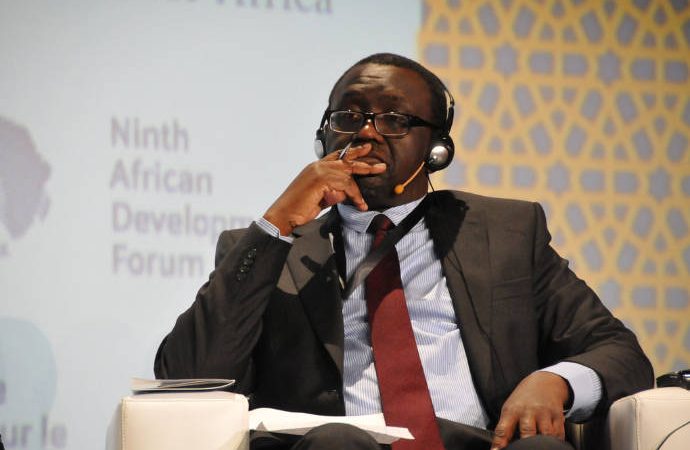Due to sharp drop in the country’s oil revenue, the Federal Government has said it will raise a total sum of N2.5trillion for its 2016 budget deficit through effective tax revenue, local and international borrowing.
In a move to ensure full implementation of this year budget, the Special Adviser to the President on Economic Matters, Dr. Adeyemi Dipeolu, disclosed that there are indications that drop in global oil prices will stay for long, and for government to power the 2016 budget will need significant contributions from taxation.
While speaking at the Nigeria-South Africa Chamber of Commerce breakfast meeting in Lagos, Dipeolu highlighted the importance of economy diversification as a measure to address the dwindling oil prices which has affected the government revenue.
As part of the strategic implementation plan of the government, Dipeolu said, “We need to pay attention to goods being manufactured here and improve the manufacturing capacity of Nigerian companies. The first step to industrialisation of Nigeria has to be agro-allied so that the raw materials will be available for manufacturers.”
Speaking on the reforms that Nigerians should expect in the agricultural sector, he said the government’s focus in 2016 was to achieve sustainability in tomato paste production, saying that rice sufficiency would be the target in 2017 while local production of wheat would be the focus in 2018.
In addition, the Special Adviser said the aim of the government was to improve the country’s ease of doing business ranking by 20 places.
The 2016 World Bank report on Doing Business had placed Nigeria as number 169 among 189 countries in its ease of doing business ranking.
However, Dipeolu stated the plan was to attain 149th position by implementing fast track measures for business approvals; visa application and issuance processes; and land titles acquisitions, among other bottlenecks businesses face in the country.
According to him, the government would establish a deadline for the country to be self sufficient in refined petroleum products and become a net exporter.
Meanwhile, the data obtained from 2016 budget showed that the federal government share of oil revenue projection tumbles from N1.64trillion in 2015 to N820billion in 2016, which is about 50 percent drop in oil revenue.
Although, government has noted that a total sum of N3.86 trillion would be generated for implementation of this year budget, with N820billion coming from oil, as well as non-oil taxes of N1.45trillion with independent revenue generation of N1.51trillion.
But this indicated that projection for non-oil revenue rose by 20 percent from N1.21trillion in 2015 to N1.45 percent from N489billion in 2015 to N1.51trillion.
However, financial experts have said that the budget has potential of changing the economic situation in the country but noted that with all these potentials and benefit ahead, tasked Nigerians to monitor the proper implementation of the budget and not to be restricted federal government alone.
Prof. Kunle Wahab, a former Special Adviser to the president on Budget Monitoring and Price Intelligence Unit (BMPIU), called on Nigerians to monitor the proper implantation of the budget.
He said that all hands should be on deck for the implementation, while reacting to the recent signing of the 2016 Appropriation Bill into law by President Muhammadu Buhari.
Wahab noted that failure of appropriate implementation of past budgets often times arose because of the absence of proper monitoring by all concerned.
“Everyone is government and not only those in governance, what can each one of us do to profitably execute the intentions of the government?,” he quarried.














